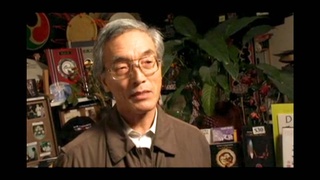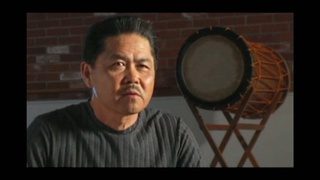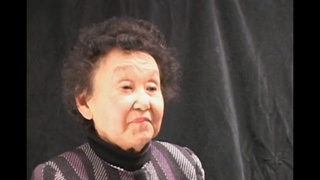Interviews
Taiko as a family tradition
Taiko, originally for me when I first got involved with it, it was fun and something my family did. So, it was just a given that we would become involved. I never really thought of it as a tradition at that time. And in fact, my husband brought it up when we were dating, and he recognized that I had such a commitment during the summer months to taiko and involvement in it that he brought it up once. And he said, “There’s this tradition that you see to continue in your family.” And I kind of thought about, and I thought, “I guess.” I never really thought about it as a tradition.
And I was then very grateful to him because he has really embraced, not only having joined and learning taiko, but making a commitment to it and seeing that the group continues. Of course, now having our son being committed to it also is pretty special. So, as you progress in your taiko experiences, the meaning of taiko and what it brings to you personally becomes different as time goes on. And I’ve noticed that in our players as well.
Date: July 9, 2004
Location: Hawaii, US
Interviewer: Art Hansen, Sojin Kim
Contributed by: Watase Media Arts Center, Japanese American National Museum
Explore More Videos

His parents' experience with Japanese resistance toward intermarriage with Okinawans
(b.1925) Nisei of Okinawan descent. Had a 38-year career in Japan as a baseball player, coach, scout, and manager.

Working in cane fields as teenager to supplement family income
(b.1925) Nisei of Okinawan descent. Had a 38-year career in Japan as a baseball player, coach, scout, and manager.

Understanding Sansei taiko (Japanese)
(b.1943) Shin-issei grand master of taiko; founded San Francisco Taiko Dojo in 1968.

Soukou Bayashi: Dedicated to the Issei (Japanese)
(b.1943) Shin-issei grand master of taiko; founded San Francisco Taiko Dojo in 1968.

Handmade taiko (Japanese)
(b.1943) Shin-issei grand master of taiko; founded San Francisco Taiko Dojo in 1968.

Taiko philosophy (Japanese)
(b.1943) Shin-issei grand master of taiko; founded San Francisco Taiko Dojo in 1968.

Rediscovery of Japanese culture through taiko (Japanese)
Shishimai (Lion dance) and Taiko player with San Francisco Taiko Dojo.

The reason he came to the United States (Japanese)
(1949 - 2019) Taiko player. Founded five taiko groups in Southern California

First taiko performance in the United States (Japanese)
(1949 - 2019) Taiko player. Founded five taiko groups in Southern California

Differences in taiko style (Japanese)
(1949 - 2019) Taiko player. Founded five taiko groups in Southern California

Originality of each taiko group (Japanese)
(1949 - 2019) Taiko player. Founded five taiko groups in Southern California

Benefits of living in the United States (Japanese)
(1949 - 2019) Taiko player. Founded five taiko groups in Southern California

Promoting group identity through taiko contests (Japanese)
(1949 - 2019) Taiko player. Founded five taiko groups in Southern California

Taiko's sounds as Japanese cultural tradition (Japanese)
(1949 - 2019) Taiko player. Founded five taiko groups in Southern California

Relationship with my father
(b. 1920) Incarcerated during World War II. Active member of the Japanese Canadian community
